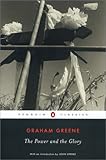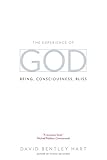Piety and profanity both require devotion. Graham Greene knew that. Greene was received into the Roman Catholic Church in 1926, and announced the conversion to his mother by writing “I expect you have guessed that I am embracing the Scarlet Woman.” He later identified as a “Catholic agnostic,” which complemented his baptismal name of Thomas, “after St. Thomas the doubter and not Thomas Aquinas.” He found God, but hadn’t lost his wit.
 To say that Greene was a troubled Catholic would be the same as calling him a Catholic at all. He dramatized the obscenities of a Mexican whiskey priest hunted by Tomás Garrido Canabal’s Red Shirts in The Power and the Glory. In one scene, the priest has been jailed for possessing brandy, and shares a dark cell with others, including a couple having sex. A “pious” woman, jailed for having religious books, calls the copulating pair “brutes” and “animals.” She hates their “ugliness.” The whiskey priest knows better. He tells the woman to not believe that, “Because suddenly we discover that our sins have so much beauty.”
To say that Greene was a troubled Catholic would be the same as calling him a Catholic at all. He dramatized the obscenities of a Mexican whiskey priest hunted by Tomás Garrido Canabal’s Red Shirts in The Power and the Glory. In one scene, the priest has been jailed for possessing brandy, and shares a dark cell with others, including a couple having sex. A “pious” woman, jailed for having religious books, calls the copulating pair “brutes” and “animals.” She hates their “ugliness.” The whiskey priest knows better. He tells the woman to not believe that, “Because suddenly we discover that our sins have so much beauty.”

 Michael Robbins is our contemporary poet laureate for beautiful sins of language. The New Republic calls Robbins a prankster. He rather reminds me of that whiskey priest, his lines by turns abrasive and aphoristic, but never apathetic. Robbins’s 2012 debut, Alien vs. Predator, set the mold for his poetic play, but I think Robbins’s center might reside in his criticism. In a review of theologian David Bentley Hart’s The Experience of God, Robbins punctures the silkscreened divinity portrayed by the New Atheists (they “ingeniously deny the existence of a bearded fellow with superpowers who lives in the sky and finds people’s keys for them”). At the same time, he says “showing up American fundamentalism is about as hard as shooting the deck of an aircraft carrier when you’re standing on it.” His problem, of course, is with literalism: the Word made flat.
Michael Robbins is our contemporary poet laureate for beautiful sins of language. The New Republic calls Robbins a prankster. He rather reminds me of that whiskey priest, his lines by turns abrasive and aphoristic, but never apathetic. Robbins’s 2012 debut, Alien vs. Predator, set the mold for his poetic play, but I think Robbins’s center might reside in his criticism. In a review of theologian David Bentley Hart’s The Experience of God, Robbins punctures the silkscreened divinity portrayed by the New Atheists (they “ingeniously deny the existence of a bearded fellow with superpowers who lives in the sky and finds people’s keys for them”). At the same time, he says “showing up American fundamentalism is about as hard as shooting the deck of an aircraft carrier when you’re standing on it.” His problem, of course, is with literalism: the Word made flat.
Critic Matthew Sitman has recently called Christian Wiman the “most important Christian writer in America.” Robbins, then, might be the most provocative Christian writer in America. For Robbins, the “incoherence” of naturalism “is the external warrant for my belief in God.” His one criticism of Hart is the theologian’s dismissal of the “possibility that our bafflement before ontological mystery is the result of our being the kind of limited animals we are. A badger cannot understand differential equations, but that tells us something about badgers, not equations.” It is refreshing to discover a poet critically concerned with God, and to do so with humor.
The Second Sex is formally tight and theologically fragmented. In his criticism, Robbins eschews literal pronouncements of the divine. For him, “where religion addresses ontology, science is concerned with ontic description.” The latter seeks to catalog; the former simply seeks. Books & Culture editor John Wilson was correct in comparing Robbins’s method to that of fellow believer T.S. Eliot in The Waste Land. Both poets mixed and matched. In “Springtime in Chicago in November,” Robbins writes “First comes love, which I disparage. / I blight with plagues a baby carriage.” If his entire collection were merely reworked pun after reworked pun, the result might be a trite book. But that would be mistaking his form for his function. The Second Sex is equal parts obscene and oblatory. Robbins, like a good preacher, paces his presentations. The shifts within “Country Music” are emblematic of his entire poetic project:
God bless the midnight bus depot,
the busted guitar case.
God bless diazepam,
its dilatory grace.
Those lapsed or elapsed in religious faith will recognize a certain method to Robbins’s poetic heresies. Who hasn’t wanted to say, “You must’ve been high as a kite / when you created us.” Whether or not “Country Music” is a genuine hymn, it ends on a particular note:
God keep the world this clean and bright
and easy to believe in
and let me catch my bus all right,
and then we’ll call it even.
Robbins’s verse is pared to be swift. “Lose Myself” starts flippant: “Yeah, I got the bug. Got razzle dazzle, / dazed and refused. I’m with stupid.” Four stanzas later, it ends with truth: “It takes three miracles to make a saint, / just one mistake to make a man.” The same pivots happen in “Peel Off the Scabs,” where the narrator reminds us that “God became a man, / surely I can do the same.” He follows:
O Captain! my Tennille! the Eagles
will come and pull out his eyes.
Jesus coming back, they say,
and we’ll all shout Surprise!
Robbins says “most reviews are merely serviceable, because reviewing is a service industry. Readers want to know whether they should read a book or skip it.” Elsewhere, he admits it is “remarkable that we’re driven to write about art–to explain, judge, describe, elucidate, analyze, hate, rhapsodize, tell a story. We can’t let them be–cathedrals, blockbusters, poems, pictures, statues, songs. They demand words from us.” In that vein, to identify The Second Sex as parodic would be reductive. Of course we steal from other poets. What matters is how we sharpen what we steal. Robbins employs a midrashic approach in his poetry. Whether he is pilfering from Led Zeppelin or Gerard Manley Hopkins, Robbins does so with technical agility. The Second Sex is a confident, skillful work that will make readers reconsider poetry. Who could end a poem titled “Sweat, Piss, Jizz & Blood” with “God is great”? A poet who finds divinity in all things, especially “a billion points of glitter / in a fathomless abyss.”










